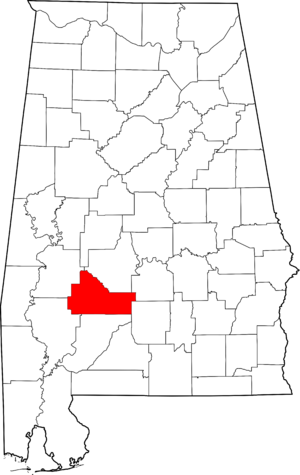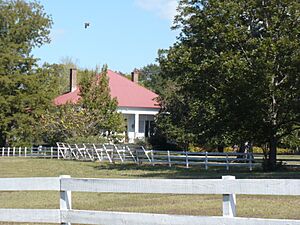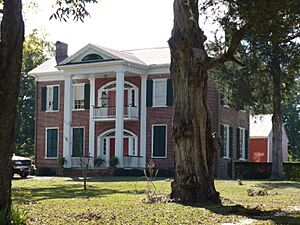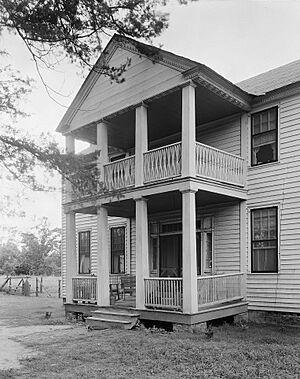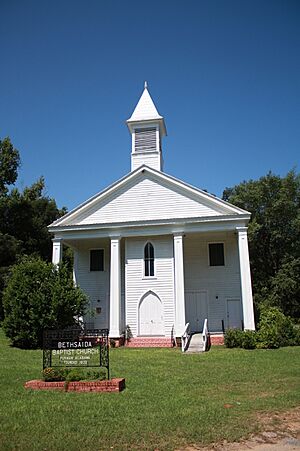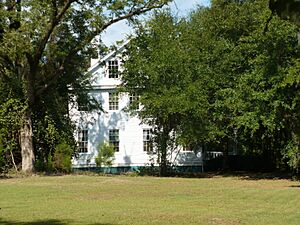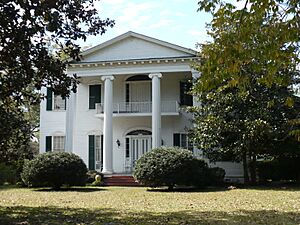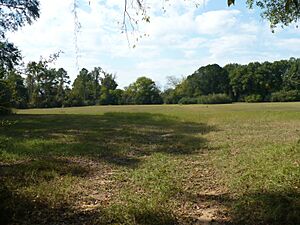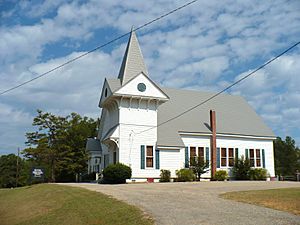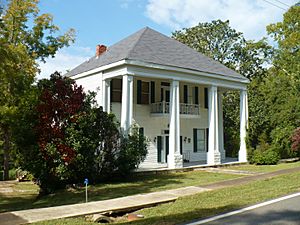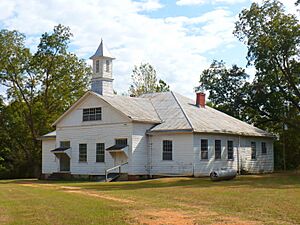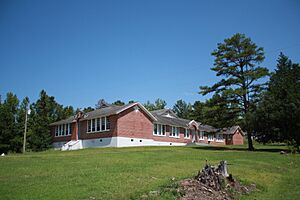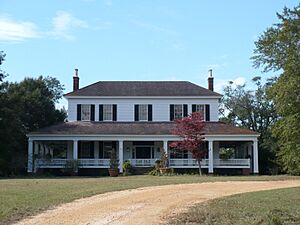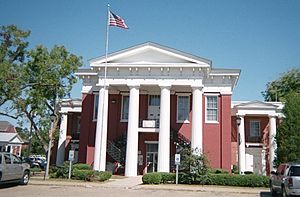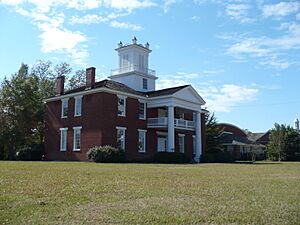National Register of Historic Places listings in Wilcox County, Alabama facts for kids
Have you ever wondered about old buildings and special places that tell stories from the past? In Wilcox County, Alabama, there are many such places! This list will introduce you to some amazing historic sites and districts that are so important, they've been added to the National Register of Historic Places. This register is like a special list of places in the United States that are worth protecting because of their history and unique features.
There are 15 of these cool spots in Wilcox County. Let's explore some of them!
Historic Places in Wilcox County
Ackerville Baptist Church of Christ
This beautiful church was built way back in 1848. It's designed in a style called Greek Revival, which means it looks a bit like ancient Greek temples with its grand columns and simple, strong shapes. It's located on State Route 89 in Ackerville.
William King Beck House
Imagine living in a big plantation house built in 1845! That's when this house was made for William King Beck. He was the nephew of William R. King, who was the 13th Vice President of the United States. This historic home is found near Camden, along the Alabama River.
Tristram Bethea House
Built in 1842, the Tristram Bethea House was the very first brick house in Wilcox County! It's a great example of Federal style architecture, which was popular in the early days of the United States. You can find it where State Route 28 meets County Road 22 in Canton Bend.
Dry Fork Plantation
This plantation house was built between 1832 and 1834 for James Asbury Tait. What's really special is that skilled enslaved artisans built it. It's another example of the Federal style, showing how people built homes in that era. It's located southwest of Camden, near Coy.
Furman Historic District
A historic district isn't just one building; it's a whole area with many old buildings! The Furman Historic District includes most of the community of Furman. It has a wide variety of buildings from the 1800s, showing how the town grew over time.
Hawthorne House
In Pine Apple, you'll find the Hawthorne House, a Greek Revival style plantation home built in 1854. It was made for Joseph Richard Hawthorne. This house is a great example of the grand homes built in the South before the Civil War.
Liberty Hall
Another beautiful Greek Revival plantation house, Liberty Hall, was built in 1855 for John Robert McDowell. It stands near Camden on State Route 221. These homes often had large columns and symmetrical designs, making them look very impressive.
Liddell Archeological Site
This isn't a building, but a very old site where archaeologists have found amazing things! The Liddell Archeological Site shows signs that people lived here for a very long time, from about 9000 BC all the way to 1800 AD. It's especially known for its ancient Native American artifacts, including special burial urns. This site helps us understand the lives of the first people in Alabama.
Oak Hill Historic District
The Oak Hill Historic District is another area with many historic buildings. It's located around the main roads in Oak Hill, State Routes 10 and 21. Here, you can see different architectural styles from the mid-1800s to the Victorian era, which was a time of fancy and detailed designs.
Pine Apple Historic District
Just like Oak Hill, Pine Apple also has its own historic district. This area shows off many different building styles, from the Craftsman style (which uses natural materials and simple designs) to the Colonial Revival style (which brings back older American designs). It's a great place to see how architecture changed over time.
Prairie Mission
The Prairie Mission was a school founded in 1885 for African Americans. It was started by a church group called the Freedman's Board of the United Presbyterian Church of North America. This mission played an important role in providing education during a time when opportunities were limited for many. It's located near Catherine.
Snow Hill Normal and Industrial Institute
This school for African Americans was founded in 1893 by Dr. William J. Edwards, who had studied at Tuskegee University. The Snow Hill Normal and Industrial Institute grew a lot, eventually having 27 buildings, 35 staff members, and over 400 students! It was a very important place for education and skill-building.
Tait-Ervin House
Built in 1855 for Robert Tait, this plantation house in Camden has some cool features. It has a "Carolina porch," which is a type of porch that's usually one story high. Inside, you can see amazing plasterwork, which means the walls and ceilings have detailed designs made from plaster.
Wilcox County Courthouse Historic District
The heart of Camden is the Wilcox County Courthouse Historic District. This area is centered around the courthouse itself and features a wide variety of architectural styles from the 1800s and early 1900s. It's like a living museum of how buildings looked in different eras.
Wilcox Female Institute
From 1845 to 1850, this Greek Revival style building was a boarding school for girls in Camden. It was a place where girls could live and study, getting an education during a time when formal schooling for girls was becoming more common.


